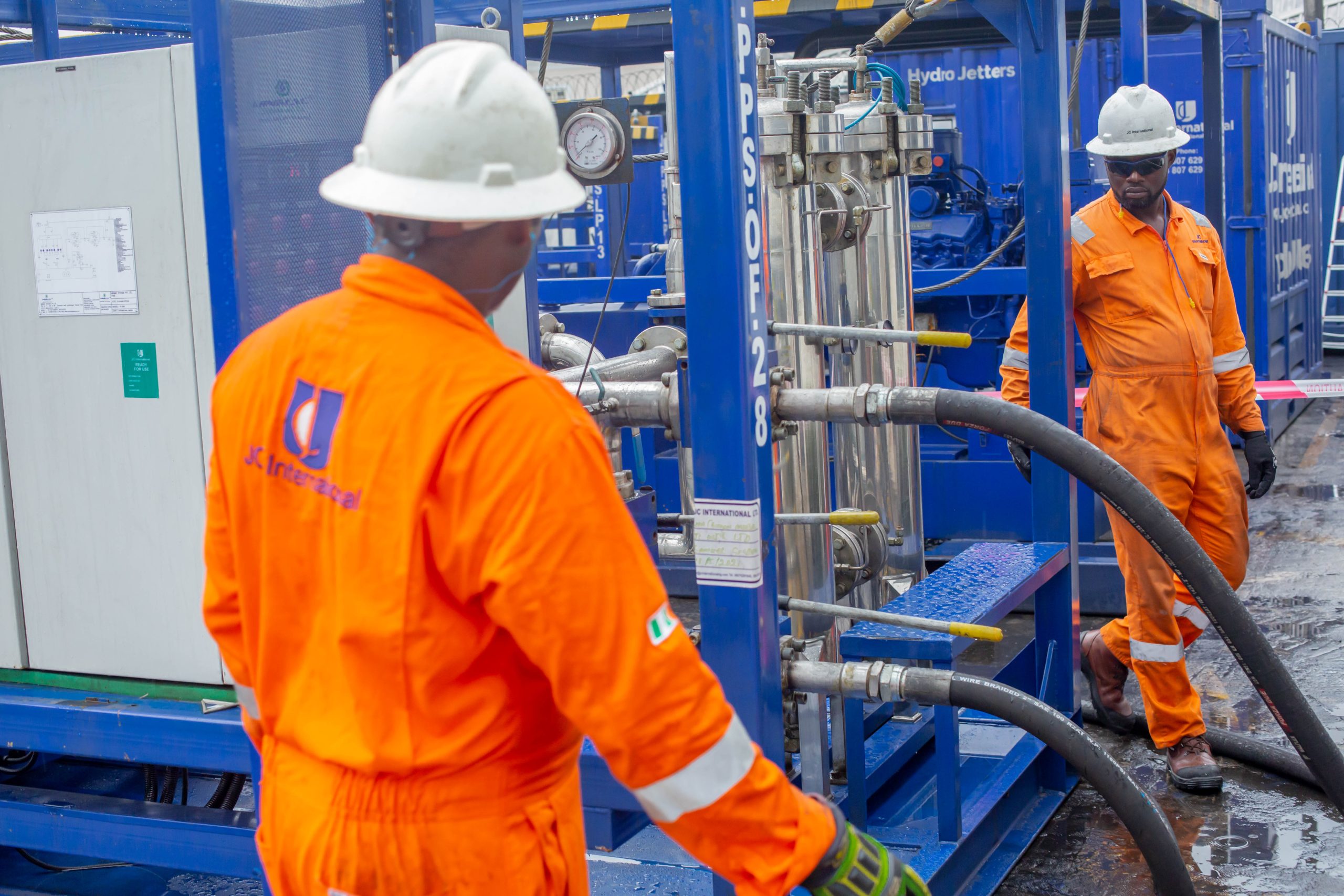
Lube oil flushing- All you should know
what is lube oil flushing?
Lube oil flushing is a critical maintenance procedure used to clean and maintain lubrication systems in various types of machinery and equipment, particularly in industrial and marine applications. The process involves circulating a high volume of clean oil or a flushing fluid through the lubrication system to remove contaminants, such as dirt, metal particles, sludge, and varnish.
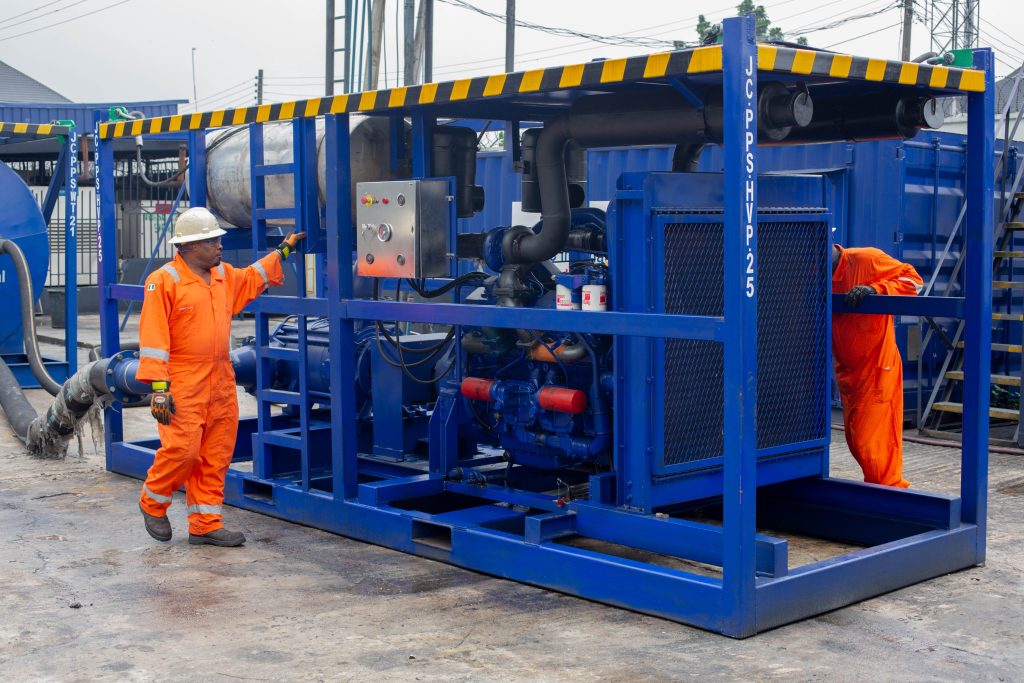
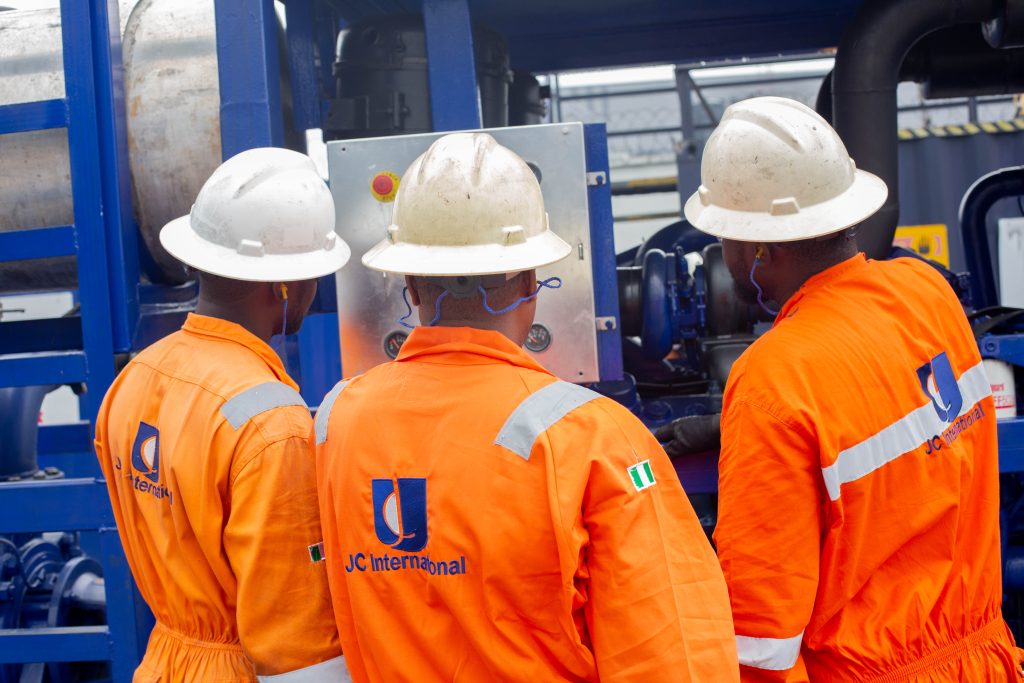
Purpose of Lube Oil Flushing
- Contaminant Removal: The primary purpose is to remove contaminants such as dirt, metal particles, sludge, varnish, and other debris that can accumulate in the lubrication system.
- Preventive Maintenance: Helps prevent equipment failure by maintaining clean lubrication pathways, thus reducing wear and tear on moving parts.
- System Efficiency: Ensures the lubrication system operates efficiently, providing adequate lubrication to all parts and preventing overheating and excessive friction.
When to Perform Lube Oil Flushing
- New Equipment Commissioning: Before starting new machinery to remove manufacturing residues and ensure the system starts clean.
- After Repairs or Maintenance: Following any significant repairs or maintenance work to remove any debris or contaminants introduced during the process.
- Scheduled Maintenance: Regular intervals as part of a preventive maintenance program to ensure ongoing system cleanliness and performance.
- Signs of Contamination: When there are indicators of oil contamination, such as increased wear, noise, or decreased performance.
Advantages of Lube Oil Flushing
- Enhanced Reliability: Reduces the likelihood of equipment failure due to contaminants, ensuring more reliable operation.
- Improved Performance: Clean lubrication systems provide better performance, with reduced friction and wear.
- Extended Component Life: Prolongs the lifespan of machinery components by maintaining optimal lubrication conditions.
- Cost Savings: Reduces maintenance and repair costs by preventing damage caused by contaminants.
- Regulatory Compliance: Helps meet industry standards and regulations for equipment maintenance and cleanliness.
- Safety: Reduces the risk of equipment failure that could lead to safety hazard.
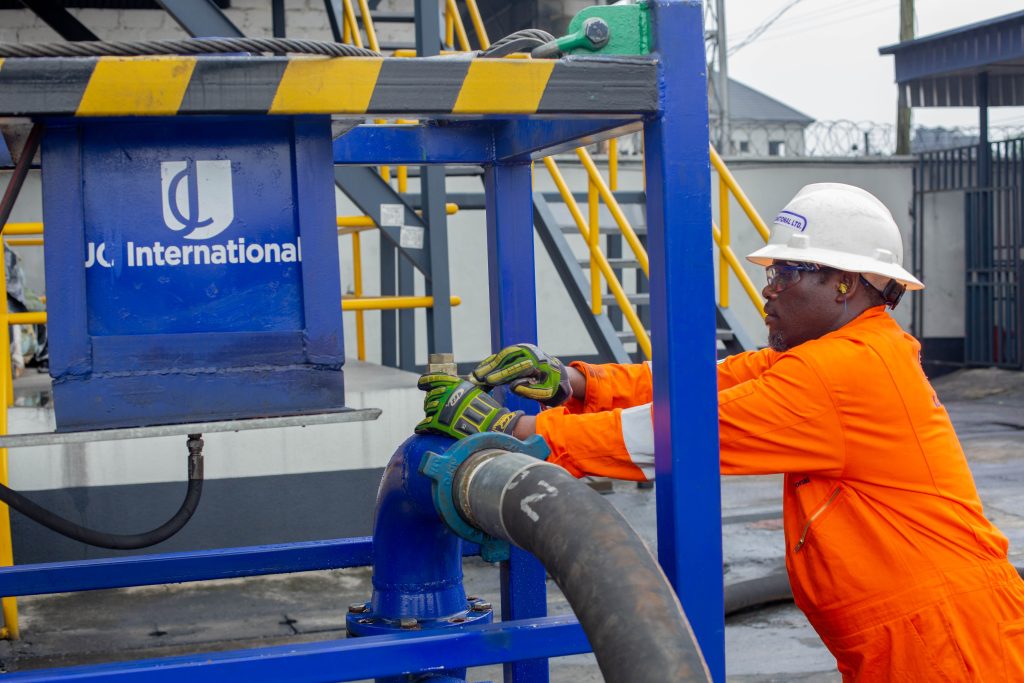
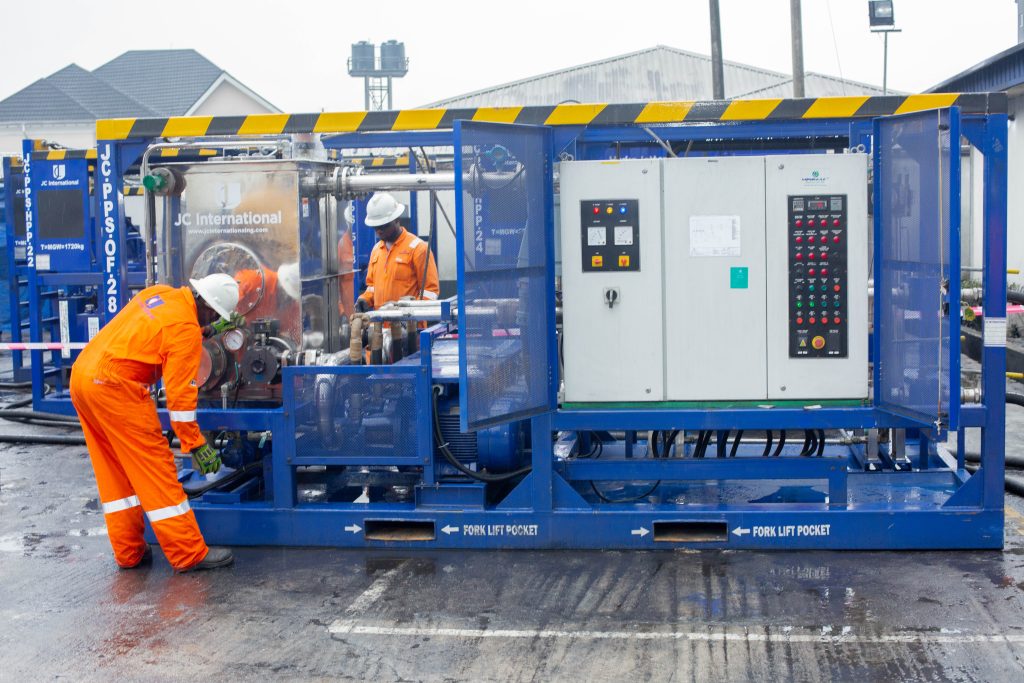
Best Practices for Lube Oil Flushing
- Regular Scheduling: Incorporate lube oil flushing into the regular maintenance schedule based on equipment usage and manufacturer recommendations.
- Proper Documentation: Keep detailed records of flushing procedures, including the type of fluid used, the duration of flushing, and the results of cleanliness tests.
- Training and Expertise: Ensure maintenance personnel are properly trained and knowledgeable about lube oil flushing techniques and best practices.
- Use Quality Fluids: Select high-quality flushing and lubricating fluids that meet the specifications required for your equipment.
When it comes to professional lube oil flushing services in Nigeria, JC International stands out as a trusted and experienced provider. Our team of skilled engineers is dedicated to delivering top-notch maintenance solutions that ensure your equipment operates at peak efficiency. We also provide expert pipeline and process services in Nigeria and Uganda. Send an email to service@jcinternationalng.com for more information.

Leave a Reply